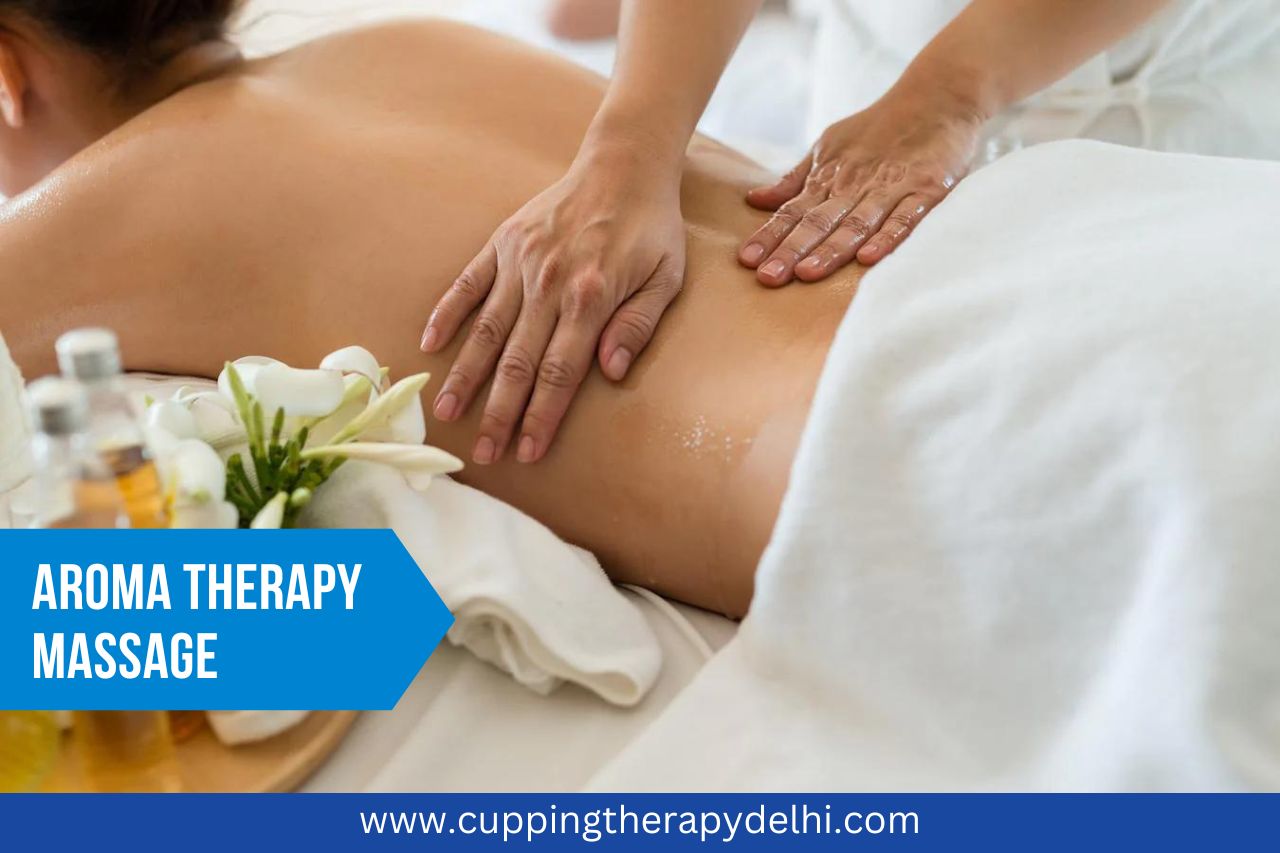
Aromatherapy massage is a holistic healing treatment that combines the therapeutic benefits of massage with the use of essential oils. These oils, derived from plants, are believed to enhance physical and emotional well-being through their aromatic and medicinal properties.
Procedure
- Consultation: The therapist discusses the client’s needs, preferences, and any medical conditions to select appropriate essential oils.
- Oil Selection: Essential oils are chosen based on their therapeutic properties and the client’s desired outcomes, such as relaxation, pain relief, or rejuvenation.
- Blending: The selected essential oils are blended with a carrier oil (e.g., almond, jojoba, or coconut oil) to ensure safe application on the skin.
- Massage Techniques: The therapist performs a massage using various techniques, such as effleurage (long, gliding strokes), petrissage (kneading), and friction (deep, circular movements), while applying the aromatic oil blend.
- Inhalation: Throughout the massage, the client inhales the aromas, which can influence mood and stress levels through the olfactory system.
- Relaxation: The session typically ends with a period of rest to allow the body and mind to absorb the therapeutic effects of the essential oils and massage.
Benefits and Uses
- Relaxation and Stress Relief: Essential oils like lavender, chamomile, and sandalwood are known for their calming properties, helping to reduce stress and anxiety.
- Pain Relief: Oils such as eucalyptus, peppermint, and rosemary can help alleviate muscle pain, joint discomfort, and headaches.
- Improved Mood: Citrus oils like orange, lemon, and bergamot can uplift mood and reduce symptoms of depression.
- Enhanced Sleep: Lavender and chamomile oils are particularly effective in promoting restful sleep and combating insomnia.
- Boosted Immune System: Certain essential oils, such as tea tree and eucalyptus, have antimicrobial properties that may support the immune system.
Considerations
- Safety: Essential oils are potent and should be used with care. A trained aromatherapist ensures correct dilution and application to avoid skin irritation or allergic reactions.
- Individual Sensitivity: People may react differently to essential oils. A patch test or consultation can help identify any potential sensitivities.
- Pregnancy and Medical Conditions: Some essential oils are not recommended during pregnancy or for individuals with specific medical conditions. Always consult with a healthcare provider or trained aromatherapist before beginning treatment.
- Environment: The setting for an aromatherapy massage is often designed to enhance relaxation, with dim lighting, soothing music, and a tranquil atmosphere.
Aromatherapy massage is a soothing and therapeutic practice that integrates the healing power of touch with the potent benefits of essential oils. It is a popular choice for those seeking a holistic approach to wellness, providing both physical and emotional relief. Whether aiming to reduce stress, alleviate pain, or simply enjoy a sensory-rich experience, aromatherapy massage offers a unique and beneficial treatment option.

